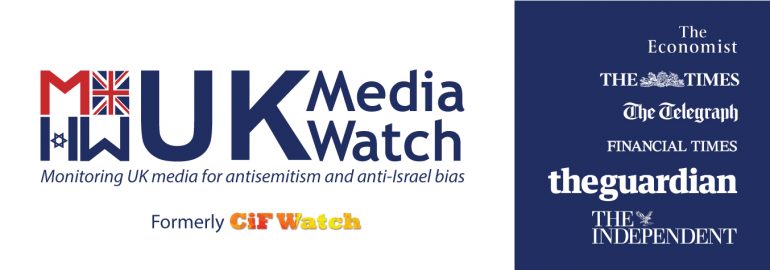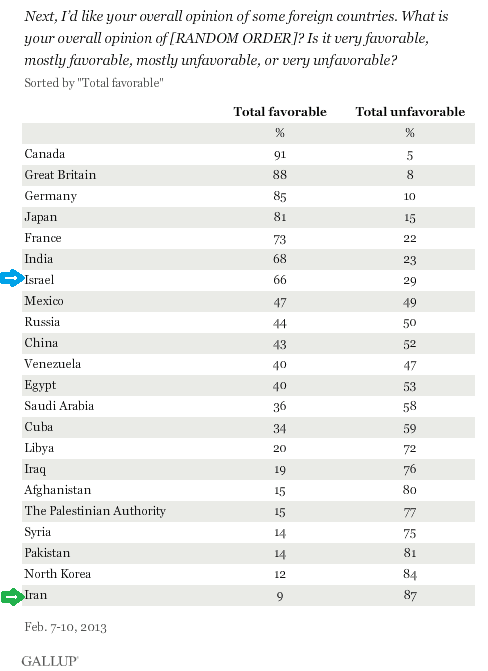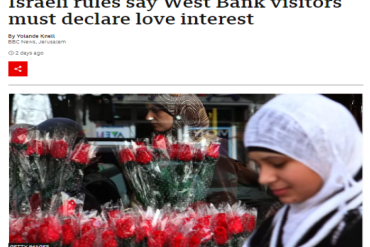In 2009, a small group of dedicated activists concerned about inaccurate and often inflammatory coverage of Israel in the UK media had an audacious idea: to take on the media group representing the central address for such biased reporting, The Guardian.
The blog established by this group was called CiF Watch, reflecting the initial focus on the Guardian’s online home for op-eds and commentaries, known as ‘Comment is Free’ (‘CiF’). The initial post at CiF Watch pledged to expose and combat the bigoted and one-sided nature of the Guardian’s obsessive focus on Israel and, by extension, the Jewish people.
Many observers – in assessing our effectiveness – noted that we often punched above our weight, and CiF Watch quickly established itself as the go-to blog for exposes on the Guardian and ‘Comment is Free’.
Over the years, we were also able to boast quite a few quantifiable successes.
- The Guardian’s egregiously skewed coverage of Israel, and their legitimization of antisemitic tropes, increasingly became part of the media conversation.
- Guardian moderators began to more promptly deleting antisemitic claims in the comment section of articles and op-eds.
- The Guardian acknowledged that they needed to address “accusations” of antisemitism.
- The Guardian’s output of Israel-related content gradually declined.
- The Guardian dramatically curtailed the output of commentaries from some of more extreme anti-Israel contributors, such as Richard Silverstein, Antony Lerman, Ben White and Ali Abunimah.
In 2012 we launched a sister site, BBC Watch, led by the prolific Hadar Sela.
And, in 2013 both CiF Watch and BBC Watch became affiliates of CAMERA (Committee for Accuracy in Middle East Reporting in America).
Since then, CiF Watch adopted the CAMERA model of media monitoring by directly engaging with editors to challenge false or misleading claims about Israel. This method proved extremely successful, garnering substantive corrections to Guardian articles and op-eds which, we argued, were in violation of the accuracy clause of the Editors’ Code of Practice.
Our success prompted us to look beyond the Guardian, and we became convinced that other British news sites were demonstrating similar patterns of misleading reporting about the region, and required consistent monitoring. As we began systematically monitoring and corresponding with editors at news sites (such as The Independent, The Telegraph, Times of London, The Economist and Financial Times), garnering dozens of corrections annually, it seemed natural to formally expand the focus of our blog beyond the Guardian.
Thus, UK Media Watch was born.

At UK Media Watch we’re dedicated to promoting fair, accurate and balanced coverage of Israel, and to combatting antisemitic narratives and tropes which sometimes lie beneath the surface of reports compromised by anti-Israel bias.
We strongly encourage you to read our posts, follow us on Twitter, ‘Like’ us Facebook, and become actively involved in fighting media bias. Please contact us – via a personal message on Twitter or Facebook – when you have a tip about a substantive error at a UK news site (or at networks such as Sky News and Channel 4 News). Also, consider making complaints yourself, using the UK news site contact information on our Take Action page.
As always, we thank you – our loyal followers – for continuing to support us in carrying out our vital mission.
Related articles
- CAMERA director interviewed on Voice of Israel (bbcwatch.org)
- CAMERAonCampus Editor Quoted Re BDS (cameraoncampus.org)





